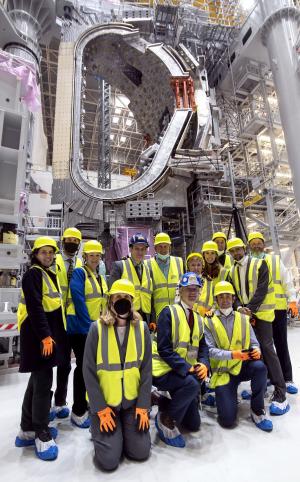"Today I saw the possibility of world peace"
"We cannot 'eliminate our way' to net zero. We have to innovate, not eliminate our way to carbon neutrality." With this observation, United States Senator Joe Manchin set the stage for a candid, thoughtful conversation at the end of his extended tour of the ITER worksite on Friday 25 March. Around the table were US scientists and engineers working at ITER, as well as Assistant Secretary of Energy Ali Nouri and other US officials. Senator Manchin—a pivotal figure in US energy policy as the Chair of the Senate Committee on Energy and Natural Resources—led a wide-ranging discussion on energy markets, energy security, and what he referred to as the current "weaponization of energy, energy resources, and weaponization of access to the minerals used in energy production." Above all, the dialogue zeroed in on the role of fusion and ITER. "Today I saw the possibility of world peace. Because I don't think, in the annals of history, we've ever had a war that was not in some way about energy. What you are all doing here is laying the ground for world peace."
Well known for his fiscal conservatism, Manchin emphasized this return on investment in his meeting with US staff. "What you are experiencing here as US citizens, associating with all these brilliant minds from around the world, must be an unforgettable experience. For a 9% investment we are getting a 100% return .... You are showing that fusion can be done to scale. And what you are building is the future."
Before becoming a United States senator in 2010, Manchin served as Governor of the State of West Virginia. He noted that West Virginia still relies on coal for 93% of its electricity, the highest rate of any US state. Despite considerable efforts to reduce emissions from these plants, Manchin said the current situation is untenable. West Virginia, he said, would be a prime candidate for innovative clean energy, including fusion.
The promise of fusion, in Manchin's view, should be presented in simple terms. "The Sun is 93 million miles away, yet if you spend an hour outside you can still get a sunburn. Imagine what we could do with that energy if we could make it portable and place it wherever we need it. It's unbelievable."



